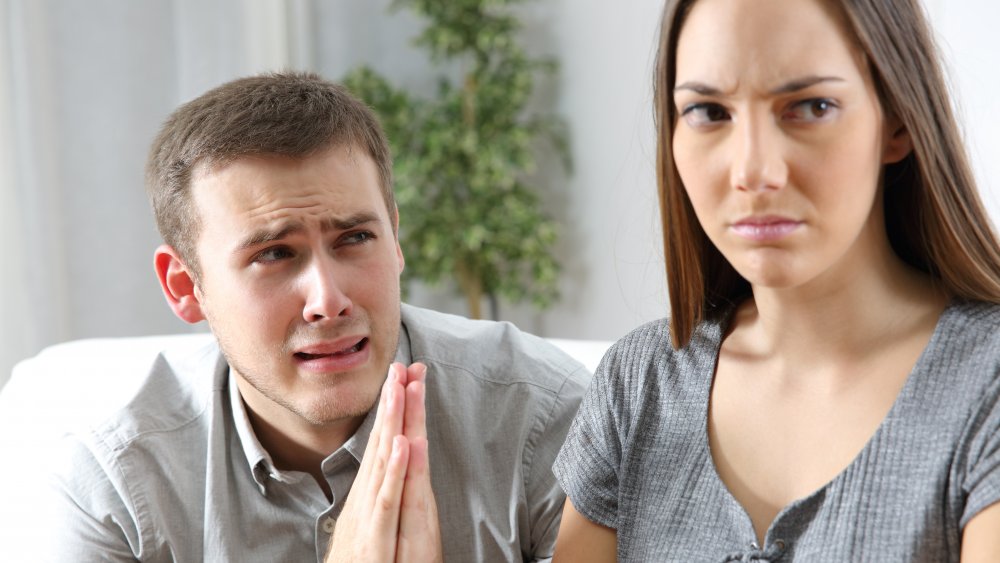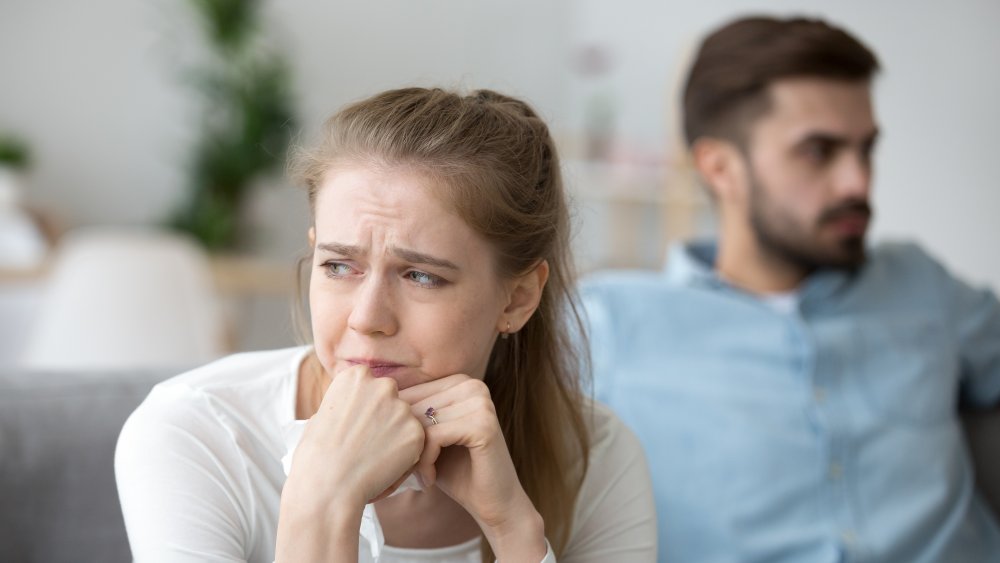Why Do Cheaters Cry?
One of the most devastating things that can happen in a relationship is finding out your partner cheated on you. Learning that your sweetheart has strayed can be traumatic and painful, but it can also be confusing. When cheaters are confronted, they sometimes act in ways that are puzzling, such as crying.
While a cheater crying may indicate that they're truly regretful of their actions, it could also mean that they're trying to manipulate you. Cheaters will often try to gain sympathy to avoid accountability for their actions, and tears may be a part of that.
"Cheaters who, when caught, say, 'I need help!' try to turn the empathy onto themselves, so that they don't have to take responsibility for their behavior," relationship expert April Masini told Bustle. "They sometimes ask for sex addiction rehab and try to see themselves as people who cheat because they have no choice. They often liken their cheating to smokers who can't stop using cigarettes or alcoholics who can't stop drinking."
A cheater who cries might be gaslighting you
Cheaters who cry may also be attempting to gaslight you by making you think that you're in the wrong. How do you know if your partner is gaslighting you? If they burst into tears and deny any wrongdoing after cheating, it's a sign of gaslighting. "Cheaters who try to make accusers think they're [out of their mind]... will not only deny any wrongdoing, but they'll try to spin the truth to make it seem like the accuser is out of his or her mind and is really losing it," said Masini.
Of course, crying could also be a sign of genuine remorse. Don't take their tears at face value, though. A cheater who is truly sorry and wants to work on the relationship will do more than just cry. As psychologist Dian Kirschner explained to Psychology Today, signs that you may be able to work things out and establish a health relationship include the cheating partner ending the affair and cutting off contact with their lover, demonstrating "a renewed appreciation and devotion towards you," having open conversations about your relationship and how to fix it, and wanting to seek counseling to work on your relationship.

